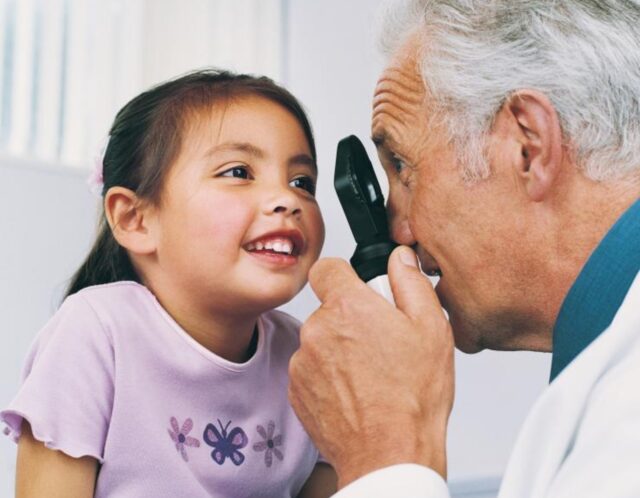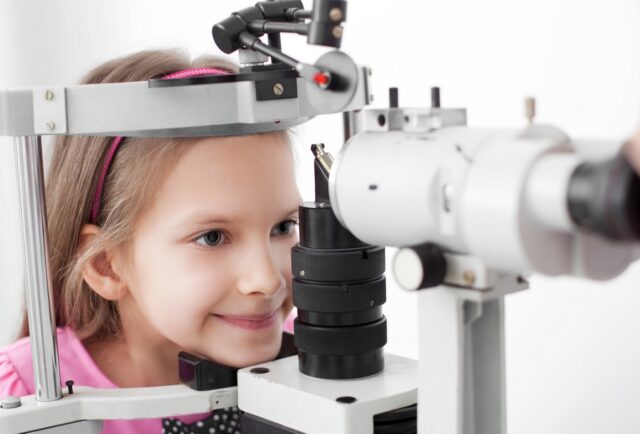
Taking your child for his first eye examination can be frustrating for you as well as your child. This situation becomes even more difficult if you have a fussy child and don’t know how to prepare yourself and your child for his first check-up. Finding an eye care center with friendly, patient, and experienced staff welcomes the children is quite tricky unless you visit the Park Slope Eye care center. Not all specialists have the right skill set to deal with the children and make them comfortable; therefore, finding the right specialist for eye care examination can be difficult.
Not all specialists will be able to deal with the children as they require patience to begin with. To make your first appointment somewhat simplified and smooth, we are here to give you some valuable information about how to prepare yourself for your child’s first appointment.

Prepare your child for the examination
Don’t bring out the words testing and examination as the child will probably take it as an exam where he is going to be judged. Instead, educate them about the process of examination and tell them how it is a routine procedure everyone undergoes to make sure that their eyes are working fine. Educate them about the process and the test so that they do not feel scared when tested.
Reassure them that you will be with them throughout the process, and no needles will hurt them. If necessary, you can also call out other children that have undergone the examination to make your child feel less worried and calm about the eye examination.
You can also reassure your child that you will go through the examination process first so that they feel a bit familiar with the procedure. Tell them how the eye care specialist will ask them to look at some pictures as if it is just a part of the game. You can also reward them with treats if they stay patient throughout the examination. Make this visit seem like a fun activity rather than an uncomfortable experience.
Dilating drops are the part of the examination that can make your child uncomfortable and fussy. Practice administrating the eye drops like artificial tears at home so that your child cooperates with the eye care professional, and the process goes smoothly. You can also tell your child that you will stay with him throughout the process. Children will feel comfortable in your presence, and you can help the eye care specialist in examination by directing your child as per his instructions.

Prepare yourself before the examination
Parents are the best observer of their children’s behavior. Children are not mature enough to tell us that they are having vision trouble. As parents, you can observe their behavior that may exhibit an underlying problem. This behavior includes excessive blinking, watering of eyes, frequent headaches, frequent eye rubbing, and other signs. These can be some of the initial signs of vision issues. Also, some vision issues like squint can be better treated when they are diagnosed early.
As time passes, permanent changes may take place, and recovery from these issues becomes difficult. Therefore, it is of utmost importance that you periodically examine your children’s eye. You can mention these issues to the expert while they examine so that they can eliminate any probable cause. Meanwhile, you can focus on answering the following queries.
Prepare your family history to present before the examination, if people have been suffering from refractive errors in your family. In the case of previous genetic history, children are more exposed to such vision issues. And a healthy diet and proper lifestyle can reduce the chances of such an occurrence.
Children that passed their milestone later might suffer from nutritional deficiency or imperfect assimilation of food. In these cases, the effects can also be seen in the eyes. Don’t forget to tell the history of milestones hit by your child to the eye care expert.

If your child had a premature birth or a delayed birth history?
List all the suspected behaviors of your child make you think he might have vision issues, like a tilting of the head, sitting very close to the TV, delayed response, difficulty in making eye contact with you, and more.
It would be best if you also tried to fix your appointment before visiting the eye care center so that the examination can be done in the least time possible.
Make sure that you have plenty of time for the examination as the doctor will dilate your child’s eye and then make the observations after an examination. Since you will be spending a decent time in the eye care center, it is recommended to bring some games and books along with you to keep yourself, and your child occupied.
Make sure that the staff is courteous and friendly with your child so that your child feels comfortable. Make sure that your child is well-rested and happy so that he can comfortably go through the process. These are some of the tips that can make your child’s appointment a rather comfortable experience. Follow these tips and schedule the appointment for your child now. Also, don’t forget to take your child for an outing after the examination so that he cooperates with the eye care expert next time while being on his best behavior.









